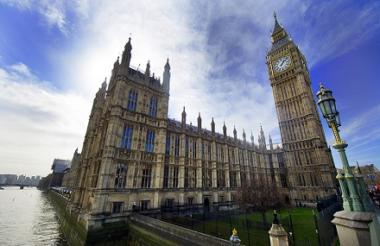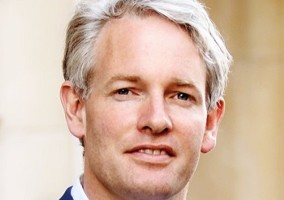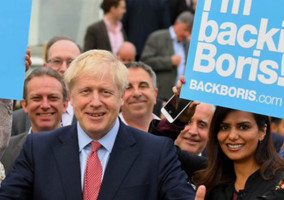A few days on from the general election and whether it delighted, depressed or just surprised you, as charities how should we respond?
Firstly, it would be foolish not to acknowledge that many individuals who work in charities will have volunteered in their personal time for different campaigns and to support local candidates, and for those on the losing sides it will have been a shock. We are better changemakers if we bring knowledge of how politics works and passion to our professional roles, but that involves lows as well as highs, and sensitivity, support and self-care for colleagues is therefore important.
The great thing about working for, volunteering or supporting a charity, however, is we are the doers whoever is in power. Not for us the frustration of a defeated MP or activist as they contemplate how to try again in five years, we get on day in day out to directly help people and make change happen.
It has been heartening to see a surge in donations to homeless charities and foodbanks over the weekend from people who wanted to do their bit. But the role of charities is not just to pick up the pieces – it is to work for a better world tomorrow. So as the prime minister begins to map out his agenda, what are the challenges and opportunities for us to secure change?
The policy
Our first focus should be the platform on which Mr Johnson and the Conservatives stood and which they have now secured a clear mandate to implement.
The Conservative Manifesto contained a number of commitments the sector would welcome – indeed had campaigned for – such as action on rough sleeping, passing the Domestic Abuse Bill, increasing support for survivors of rape and sexual abuse, and establishing a community ownership fund. Other promised actions provide significant hooks and opportunities for charities to engage – examples include commitments to review the care system, to treat mental health with the same urgency as physical health and to publishing a national strategy on disabled people, including improving the benefits system.
On Brexit, the argument for “whether” should now be considered settled. The voluntary sector needs to put aside any qualms it had before and engage fully in the “how, what and what impact” of Brexit. On the Shared Prosperity Fund, trade, rights of EU citizens, social and environmental protections, science and medical research, the voluntary sector must be bold and effective in speaking up for the type of relationship with Europe we want to see the government pursue in any trade deals – and do so urgently as the essentials will be hammered out in the first half of 2020.
Most striking perhaps is the overall stance the prime minister has set for his new “People’s Government” with his stated commitment to “unite and level up” and for his “one nation government” to “deliver opportunity across the whole nation”. A number of commentators have suggested that Mr Johnson could end up delivering an agenda of regional economic renewal that is radical and very different from his predecessors.
The politics
Boris Johnson won by seizing, often from decades of Labour rule, a swathe of seats stretching from North Wales through the Midlands and across North West and North East England. Those former industrial areas will expect to see results and for their lives to consciously improve– whether that’s in jobs or public services. As the clutch of new Conservative MPs settle into representing their constituents it will be interesting to see how they respond to the queues of people in their surgeries struggling with Universal Credit or Work Capability Assessments and poverty pay – and whether that will affect government policy.
They will see for themselves quite how much the local services in these deprived towns and areas have been cut back over recent years and the full impacts of a decade of austerity in ways that their counterparts in leafier southern constituencies have not been so exposed to. Even if only to seek re-election these MPs will not be able to be passive bystanders. It is therefore vital all charities, but particularly local ones, get to know these MPs and build relationships.
Parliament itself as an institution will probably be less important to charities going forward. Through the Coalition and the May years we have become expert at using parliamentary debates, questions and committees to raise issues of concern, to put pressure on the government and even to pass legislation. Many of the key MPs charities have worked with over the last decade have now left parliament but the nature and size of the prime minister’s majority means the main action in shaping policy will in any case move elsewhere.
To influence effectively we will need to focus more on engaging directly with ministers, special advisers and civil servants and work through sympathetic think tanks and media outlets. We need to forge new alliances and to work with unusual suspects. Perhaps above all we will need to get better at framing our analysis and arguments in ways that appeal to the centre-right politically and to the public more simply if we are to make progress, particularly around contentious issues such as social security, asylum and criminal justice.
Speaking Up
Whilst we should always seek to engage and build common cause where we can, where we cannot we will of course need to speak up or campaign more strongly than ever.
Charities have played a vital role in bridging the divides in our country nationally and locally, but sometimes we have to take sides – the side of people facing disadvantage and the excluded. It is our duty to call out hate crimes, to speak up for human rights and challenge those who hold power. Indeed our mission - please note Charity Commission - is not to be popular or to reflect public opinion. If our causes require it we must be prepared to speak up without fear or favour for those we exist to serve.
The general election gives Boris Johnson his mandate to govern. Our task is to ensure his “People’s Government” genuinely supports those who need it most. Let’s get on with it.
Duncan Shrubsole is director of policy, comms and research at Lloyds Bank Foundation for England and Wales
|
Related articles












